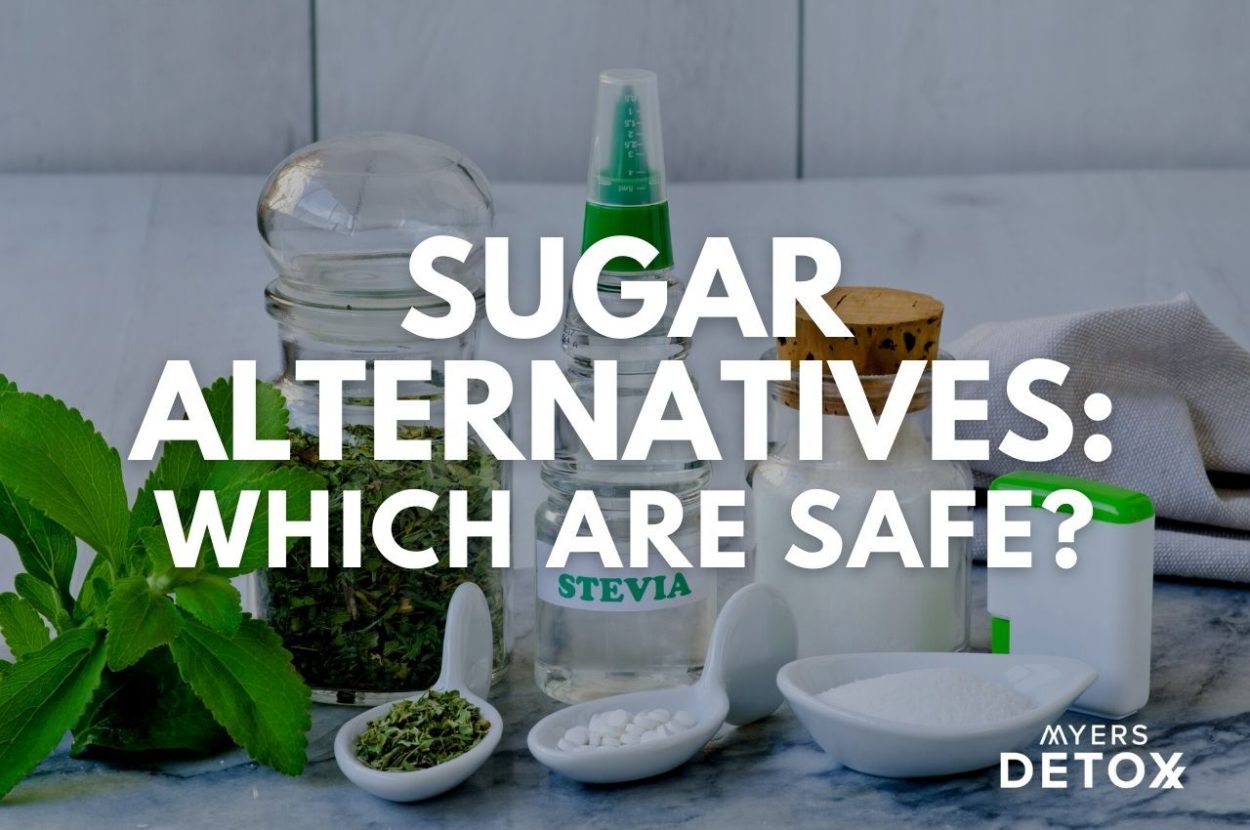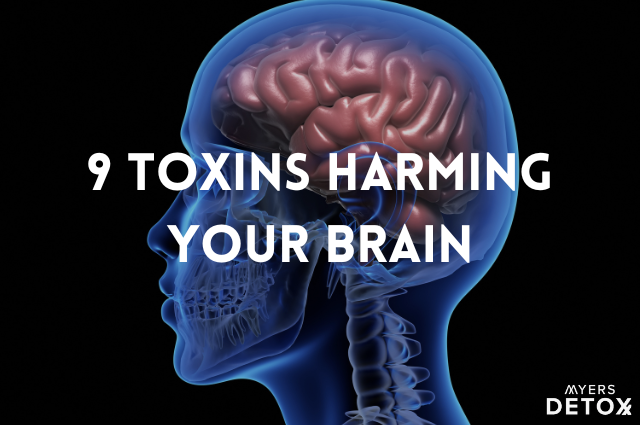Today we are going to explore sugar alternatives and ask, “Which are safe? And which ones should you stay away from?”
We are physiologically wired to crave the sweet taste. And for many people, we’re emotionally and psychologically wired as well. Yet today, all we hear is that we need to cut down on our sugar intake and eat more whole foods.
If you have a sweet tooth, this may leave you feeling somewhat helpless.
The good news is that there are a handful of sugar substitutes out there, but which ones are actually better for you than sugar?
In this article, we’ll explore
- The difference between sugar, Splenda (artificial sweetener), and stevia (natural sweetener)
- Why most health experts agree that sugar is one of the most toxic foods out there
- How artificial sweeteners may be more damaging to your health than sugar
- Where to turn when you’re sweet cravings get ahold of you
Sugar Vs. Splenda Vs. Stevia: Which Sugar Alternatives Are Safe?
It’s confusing; there is a lot of info out there, so let’s look at what the research has to say about each one:
Sugar
In its purest form, sugar is simply glucose molecules that enter your body and provide energy for your cells. This doesn’t sound like such a bad thing on the surface, and it isn’t. The problem with sugar isn’t that it’s an inherently toxic compound. In fact, sugar is naturally present in most foods.
So what is the problem then?
The problem with sugar is that humans consume far too much of it. How much? Reports indicate that the US population consumes more than 300% of the daily sugar recommendation (equaling around 152 pounds of sugar each year), with 75% of our food supply containing added sugars[1][2].
Those are staggering numbers.
So, what happens in your body when you consume sugar in large quantities?
Addiction
The chemical structure of sugar increases the neurotransmitter dopamine in your brain, which is associated with your reward center. Thus, the dopamine pathways in your brain create reward-seeking behavior and ultimate addictions[3].
This is why scientists have compared the effects of sugar to those of cocaine. In fact, some research even suggests that sugar is more addicting than cocaine[3][4].
Blood Sugar Roller Coaster
Sugar is the most readily absorbable nutrient we have. While fat and protein require a whole host of digestive fluids and enzymes to break them down, simple sugars can start their digestive process right in your mouth. While this was terrific news for your ancestors who had to go out and gather berries when there was no wild game around, today, it creates what’s known as the blood sugar roller coaster.
The sugar sources of your ancestors looked a lot different than our modern sources of sugar today. For example, they might go out and gather a basket of berries and enjoy them as a way to get a hit of energy here and there. Today, we have much more concentrated sources of sugar readily in supply. While a cup of berries would raise your blood sugar moderately, today’s candy bars, ice creams, cookies, and so on create a sharp spike in blood sugar followed by a spike in insulin (the hormone which shuttles the sugar out of your blood and into your cells).
When insulin spikes, it can result in a blood sugar crash, leaving you fatigued, drained, and craving more sugar. In addition to sugar’s addictive qualities, this phenomenon is why many people find themselves on sugar rollercoasters where they need a hit of sugar just to keep energy levels stable.
Inflammation
Sugar is one of the most inflammatory foods out there, with research showing that excess sugar consumption can increase levels of the inflammatory marker C-reactive protein in your blood[5].
C-reactive protein is like an alarm system for your body, alerting you when inflammation in your cells and tissues is on the rise.
Inflammation is said to be at the root of many, if not all, chronic diseases today, and sugar is one of the strongest dietary culprits.
Leaky Gut
Due to its proinflammatory nature, it’s suspected that sugar consumption is one of the primary factors behind leaky gut syndrome (also known as intestinal permeability).
Leaky gut occurs when the tight junctions in your intestinal barrier become loose due to too much inflammation. The damage to your intestinal lining creates “leaks” in this barrier, allowing large molecules to pass into your circulation that would normally never make it through due to their size.
This can create a range of health issues as your body is now dealing with a compound (like a partially broken down protein) that it doesn’t recognize. Many autoimmune conditions are said to stem from leaky gut, such as multiple sclerosis, celiac disease, and rheumatoid arthritis[6].
Obesity
Another benefit that your ancestors would have gained from sugar consumption is its transformation into stored energy. Unfortunately, this ancient mechanism that likely kept your ancestors alive when food was scarce has turned on us as food scarcity is rare in the US, and sugar consumption is abundant.
From a biological perspective, sugar intake leading to obesity makes perfect sense. When you consume sugar, it enters your blood and is either immediately used for energy or sent to your liver for storage as glycogen. However, when your glycogen stores get full, excess sugar is then sent to your fat cells to be saved for later.
When sugar is consumed in moderation, this usually works out okay, as your glycogen stores stay in flux and fat stores are slowly depleted and repleted within a tight range.
However, when sugar intake is in excess, your body has no place to store it except for your fat cells. In fact, your fat cells are the safest place to shuttle away excess sugar. Unfortunately, over time, this creates weight gain and can eventually lead to obesity[2].
Metabolic Syndrome
Metabolic syndrome is characterized by a cluster of conditions, including high blood sugar, high blood pressure, obesity, and irregular blood lipids. These metabolic factors set the stage for heart disease, diabetes, and stroke[7].
The Western Diet is known as the number one cause of metabolic syndrome, with sugar being a primary player. As previously mentioned, sugar increases inflammation in your body, along with the risk for obesity. What’s more, research shows that sugar consumption can produce irregular blood lipids, increasing triglycerides and decreasing HDL cholesterol[8].
Splenda
Splenda is a type of artificial sweetener, chemically called sucralose. Artificial sweeteners are potentially even more dangerous to your health than sugar as these chemical compounds are made in a lab and truly have no place in the human diet.
The chemical structure of Splenda, for example, is similar to that of the banned pesticide DDT. Both of these compounds are classified as organochlorines which are highly toxic compounds known for their slow degradation and devastating bioaccumulation[9].
Not surprisingly, sucralose has a slew of health issues that come with it, these include:
GMO Ingredients
Sucralose contains dextrose and maltodextrin, two ingredients that are more often than not produced from GMO corn.
NAFLD (non-alcoholic fatty liver disease)
NAFLD is a disturbingly common condition characterized by excess fat accumulation in your liver. Research shows that the consumption of artificial sweeteners disturbs your body’s natural digestive process and increases the number of fat deposits in your liver[10].
NAFLD is the first step in liver cirrhosis, which can become a life-threatening condition.
Gut Dysbiosis
Consuming sucralose can disturb the balance of bacteria in your gut, leading to a diminished population of healthy bacteria and enhancing the growth of harmful strains. In addition, the disruption of gut bacteria can lead to inflammatory conditions in your digestive tract, which may result in leaky gut and autoimmunity[11][12].
Insulin Resistance
Research shows that although sucralose shouldn’t have a negative impact on blood sugar, this compound can still alter glucose, insulin, and glucagon-like peptide 1 (GLP-1). In fact, human trials show that sucralose can increase insulin resistance — the exact opposite of what you would want, especially if you’re a diabetic[13][14].
Migraine Headaches and Other Symptoms
Some evidence shows that sucralose may trigger migraine headaches, which is a red flag as migraines are typically the result of unwanted stressors to the body, either chemical or emotional[15].
Other symptoms that have been reported with Splenda include skin irritation, bladder issues, diarrhea, muscle aches, and stomach cramps.
Splenda is a popular sweetener added to sugar-free foods like candy, ice cream, protein bars, cookies, and so on. This artificial sweetener is one of the most popular among the chemical sweeteners — so keeping an eye out for it is crucial if you want to avoid its harmful effects.
Stevia
So if sugar leads to metabolic issues and other imbalances, and Splenda is just straight up toxic, how about stevia?
Stevia comes from the stevia rebaudiana plant, which is native to Brazil and Paraguay. This sweetener has been around for hundreds of years and is around 300 times sweeter than sugar.
Of the three options, stevia is far and away your best bet. The quality of your stevia product matters, but when given a choice, stevia is a much safer sweetener than either sugar or Splenda. In fact, as opposed to sugar and Splenda, which only come with their potential downsides, stevia even has some benefits, including:
Antioxidant
As a natural herb, stevia contains a variety of antioxidant compounds, including flavonoids, diterpene glycosides (stevioside and Rebaudioside-A), tannins, anthocyanins, and phenolic acids[16].
Antioxidants are crucial for balancing oxidative stress in your body, which can lead to various health conditions.
Improves Insulin Sensitivity
While both sugar and Splenda may reduce insulin sensitivity, research shows that stevia improves your cells’ sensitivity to insulin[17].
Furthermore, it appears that stevia may stimulate the release of insulin after a meal, making it potentially therapeutic ideal for diabetics[18].
Anti-Inflammatory
One of the major downsides of sugar is its proinflammatory activity in your body. On the other hand, stevia contains anti-inflammatory compounds such as stevioside, rebaudioside, and isosteviol, which downregulate the expression of proinflammatory chemicals[19].
Hypertension
Research shows that stevia may be beneficial for heart health, not only because it replaces sugar (known to instigate metabolic syndrome), but also due to its impact on blood pressure. Although the mechanism isn’t completely understood, it appears that stevia may help to relax blood vessels, and therefore lowering blood pressure[20].
Satiety and Weight Loss
While replacing sugar with stevia would be an obvious way to support weight loss (fewer calories and no fat storage), some research suggests that stevia may also assist in weight loss by increasing satiety[20].
Along with these benefits, it is important to keep in mind the quality of the stevia you’re using. Today, there are several companies that are manufacturing stevia, and each product is not created equal. Some of the more highly processed forms of stevia may include GMOs or have GMO ingredients added. This practice helps cut costs, but it also damages the potential health benefits of the product. For this reason, always look for a non-GMO or organic label on your stevia.
Takeaway: When Craving Sweets, Go With Stevia
By now, you’re probably pretty familiar with the dangers that come with sugar, but you may not have known how ubiquitous it is in our food supply. If regular people are consuming over 300% of the recommended daily sugar intake, even the healthiest among us are likely hitting numbers we shouldn’t be.
Switching over to a sugar alternative is one of the most effective ways to cut the sugar habit and get your health on track, but some of those alternatives are just as bad, if not worse, than sugar. Splenda and other artificial sweeteners can damage your liver, increase your blood sugar, and mess with your gut bacteria, causing all kinds of havoc. Not to mention the uncomfortable side effects that people report when consuming Splenda like migraine, muscles aches, and digestive disturbance.
Luckily there are a handful of sweeteners that can take the place of sugar without producing more harm than good. Stevia is one such sweetener that even comes with health benefits beyond taking the place of sugar in your diet. If you’re looking for a way to naturally sweeten up your diet, look for organic or non-GMO stevia as a sugar replacement.
With that being said, keeping your sweet intake to a moderate amount is an important part of any healthy diet. Even with sweeteners like stevia, you can overdo it with sweets, so be sure not to go overboard just because this sweetener gets a green light.









